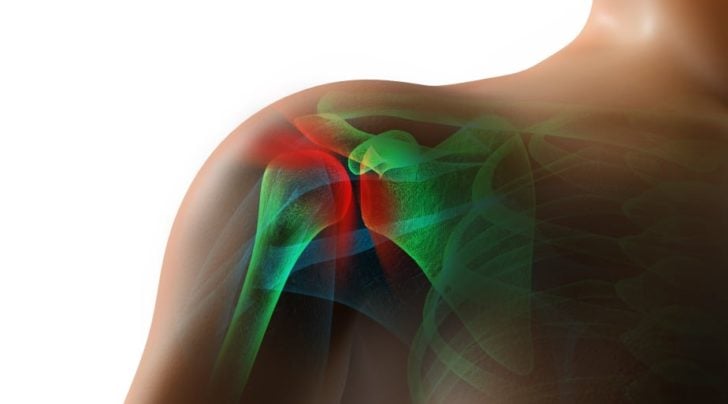
Rotator cuff tears are one of the most common reasons why people have shoulder pain. But there are many people who have rotator cuff tears and have no pain. Many rotator cuff tears can be treated without surgery and result in a painless, well functioning shoulder. Some of you may have persistent pain despite medications, injections and physical therapy. Therefore, some of you may wish to consider rotator cuff surgery. This post will help address many of the key questions you should have about rotator cuff tears and whether or not you should think about having shoulder surgery. More than ever it is important that you have a good understanding about rotator cuff tears.
The rotator cuff is made up of 4 muscles which control how well your shoulder works. If a tear in the rotator cuff is large enough it can affect how well the shoulder will function. Most rotator cuff tears are actually due to degeneration of your tendons. Some tears may occur because you were injured… such as a fall, or sports injury.
Let’s review…
5 Facts You Must Know About Rotator Cuff Tears:
- The most common cause of a rotator cuff tear is degeneration. That means your tissue simply wore out over time. These tears can become larger with time, but that is not always the case. Many degenerative tears are very small. Many patients with degenerative tears can avoid surgery. Take home message: Inquire about your type of tear. If you have a small degenerative tear, a discussion about surgery should only occur after you have failed a proper non-surgical treatment regimen. Recent advances have enabled us to repair rotator cuff degeneration and degenerative rotator cuff tears with a biological patch.
- Trauma or injuries can cause rotator cuff tears. If you have fallen on your side, and now you find that you can not move your arm due to pain and weakness, you have likely suffered a large traumatic tear of the rotator cuff. Traumatic tears are treated differently then degenerative tears. In this case, you had a normal tendon which tore because of a traumatic event. These injuries are typically treated with surgery to repair the rotator cuff. Take home message. If you fell and now have significant weakness… do not wait too long before seeing an Orthopedist. If your tear is large, it will retract and turn to fat. It is better to treat these sooner rather than later.
Retraction and Atrophy. Muscles in our body are under tension. Like a rubber band stretched between two fingers. If a tendon is torn on one end, it will start to retract or pullback towards the other end. If you have a large tear, then your rotator cuff tear can retract significantly. If it has retracted more than 3 centimeters the repair might be difficult to perform and your result might suffer, or degrade with time. When a muscle is not functioning well, it will turn to fat. Our body is cruel! If you have had a tear for a while, then there is a chance that the muscle has turned to fat.. and is NOT capable of working like a muscle. Unfortunately, once a muscle has turned to fat, it can not turn back into muscle. Take home messages: Talk to your doctor. Is your tear retracted? How far? Ask how that will affect your ultimate result. Do you have fat replacement of the muscle? How much? If it is significant, you may not be happy with the result of an attempted repair.
- Just because something is torn, does not mean it needs to be fixed. I see far too many second opinions where people had an MRI, were diagnosed with a small tear and told that they need surgery. The reason given for the need for surgery was simply because something was torn. That’s simply not true. Many people are living with tears of their rotator cuff and do not even know they have one. Just because something is torn does not mean it needs to be fixed. Take home message. If you have not had trauma or a serious injury and you are diagnosed with a small tear and have not been offered non-surgical treatment options it’s time to see a second opinion.
- Be treated like a person… not an MRI finding. All people are not created equal. All tears are not created equal. When determining what the proper treatment option is for you, your surgeon must take into account the type of tear you have, your story, your goals, your current quality of life and whether or not those goals are achievable given your exam, and your MRI findings. Take home message: Not all tears require surgery. Not all tears can be repaired. What are your goals? They matter! Are they achievable — with or without surgery? Don’t be afraid to ask questions.
Rotator cuff tears : Because you likely have more questions… see these articles for more information.
Click here to read more on the causes of rotator cuff tears.
Click here to read more about the function Rotator Cuff.
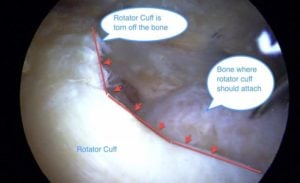


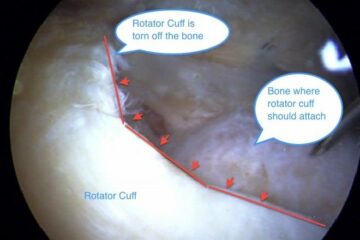
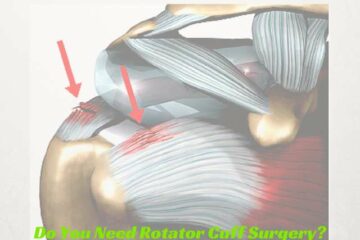
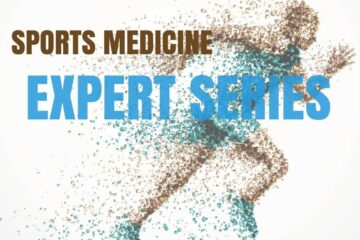
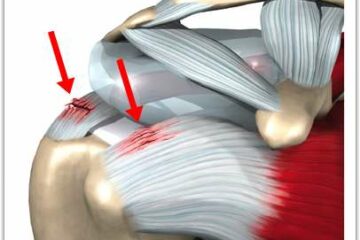








Will accupuncture help relieve the pain?
perhaps… little harm in trying
I play tennis 3-4 times a week and noticed right shoulder discomfort at night while trying to sleep. I am left-handed. When to ortho Dr. and has MRI and was told my tendon was ruptured and retracted. I still have total mobility and the Dr. was amazed there is no pain just weakness, but insist surgery is needed to pull tendon back and anchor it down. Is surgery required and there is no pain, but complete mobility? I may not get the mobility back? And if I wait to long might need reversible shoulder replacement? Your opinion please
really tough situation. Some tears do become larger, some do not. The question you need to ask your doc is what does the literature say about the success rate of surgery for a retracted tear? Depending on how much retraction and if the muscle has fatty atrophy, then the results can be rather poor.
Time to do some more research and then go back with many questions.
I have a full tear on my subscap. ..my pain is manageable and it requires surgery. .i am able to work my very physical job..If I decide against surgery what are my longterm effects?
ARE THEY SURE THE ENTIRE SUBSCAPULARIS IS TORN. THAT IS UNLIKELY IF THE ARM IS THAT FUNCTIONAL
Right, so you’re a proper doctor, and yet to mentioned muscle turning to fat!!
Muscle tissue absolutely cannot turn to fat, it is a total physical impossibility. Muscles atrophy or the grow, they do not change from one form to another.
An individual may lose muscle mass, and increase the amount of body fat, but there is no mechanism by which muscle can turn into fat, they are entirely different things.
You are correct… we do not understand fatty infiltration. But we need to try and make it easier to comprehend for the masses.
Molecular mechanisms
The molecular mechanisms that lead to the development of rotator cuff muscle atrophy and FI have not been well-defined. Two key components in the development of these muscle changes appear to be unloading of the muscle-tendon unit and denervation of the muscle.
Akt-mTOR and muscle atrophy
The Akt-mTOR (mammalian target of rapamycin) pathway plays a central role in the signal transduction pathway that regulates muscle size. mTOR serves as a downstream effector in the IGF (insulin-like growth factor) pathway, insulin pathway, and mechanical pathways and regulates muscle protein synthesis. It is also involved in protein degradation by interfering with major muscle protein degradation pathways, including the autophagy and ubiquitin-proteasome pathway.
Recent studies of massive RCTs in a small animal model are investigating the role of the Akt-mTOR pathway in the development of muscle atrophy and FI. Data from these studies suggest that tendon transection and denervation affect the regulation of the Akt/mTOR pathway in fundamentally different ways.
After an isolated tendon injury, a small increase in muscle atrophy was seen, with downregulation of the Akt/mTOR pathway. Conversely, after denervation, muscle atrophy is significant, and Akt/mTOR activity, expression of atrophy-related genes (MuRF1 and MAFBx), and protein degradation increase. Thus, the Akt/mTOR pathway appears to have a central role in the development of muscle atrophy.
FI, Akt/mTOR, and PPARγ
Previous studies had suggested that the presence of adipocytes in atrophied rotator cuff muscles is due to the differentiation of pre-adipocytes into adipocytes. This process is mediated by the PPARγ (peroxisome proliferator activated receptor gamma) transcription factor.
PPARγ is the dominant regulator of adipogenesis and has been proven to be both necessary and sufficient for fat cell differentiation. A recent study on RCTs using a sheep model found that PPARγ expression increased following transection of the rotator cuff with significant FI development.
Interestingly, a small animal rotator cuff model has shown that PPARγ can be regulated by the Akt/mTOR pathway. An in vitro study has demonstrated that adipogenic differentiation induced by PPARγ up-regulation was under the control of transcription factor sterol regulatory element binding protein 1 (SREBP-1). The Akt/mTOR signaling pathway has been shown to regulate SREBP-1 activation, suggesting SREBP-1 is a link between Akt/mTOR activation and FI.
A recent small animal study evaluated the expression of Akt/mTOR, SREBP-1, and PPARγ in a rotator cuff model with a combined tendon and nerve injury. Increased mTOR activity and increased SREBP-1 and PPARγ expression was seen. However, the most important aspect of this study was that inhibiting mTOR with rapamycin not only led to decreased mTOR activity and decreased SREBP-1 and PPARγ expression, but also to the elimination of FI. Thus, the identification of these pathways has led to potential targets for pharmacologic inhibition of FI.
You provide the most useful information on the internet regarding rotator cuff injuries. I’m a 28 year old male who tore his supraspinatus tendon 16 months ago (partial tear) 6 weeks of PT and it healed well. Most recently I tore the tendon again after getting another MRI… and it seems the tear is slightly bigger but still a partial tear. Do you recommend getting PT again to see if it heals it or do you believe that since it is reoccurring for its second time that I should get surgery? Do you hear about tears happening again and do they usually heal again?
Tough to recommend surgery for a partial tear unless you fail to respond to non-surgical measures and have significant pain. Tears can become larger … but they typically do not become larger quickly at all. No rush for now.
Thanks for the kind comments !!